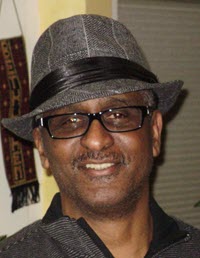Abstract
Excerpted From: Gerald Lenoir, Black Lives Matter Is a Human Rights Issue, 55 Cornell International Law Journal 1 (Spring, 2022) (33 Footnotes) (Full Document Requested)
 In 2015, Opal Ayo Tometi, one of the three Black women who cofounded Black Lives Matter (BLM), along with this author, co-authored an article on the Time magazine website titled, “Black Lives Matter is Not a Civil Rights Movement.” In that piece, we argued that the Black Lives Matter Movement has been described as the “New Civil Rights Movement” by the media and political pundits. However, characterizing BLM as such is far too narrow and limiting. Like the Civil Rights and Black Power Movements before it, as well as the Abolitionist Movement, it is fundamentally a movement for basic human rights as enshrined in the United Nations Universal Declaration of Human Rights. The founders of BLM have described it as such, much like how the leaders of the Civil Rights and the Black Power movements did. BLM is the historical successor of those movements.
In 2015, Opal Ayo Tometi, one of the three Black women who cofounded Black Lives Matter (BLM), along with this author, co-authored an article on the Time magazine website titled, “Black Lives Matter is Not a Civil Rights Movement.” In that piece, we argued that the Black Lives Matter Movement has been described as the “New Civil Rights Movement” by the media and political pundits. However, characterizing BLM as such is far too narrow and limiting. Like the Civil Rights and Black Power Movements before it, as well as the Abolitionist Movement, it is fundamentally a movement for basic human rights as enshrined in the United Nations Universal Declaration of Human Rights. The founders of BLM have described it as such, much like how the leaders of the Civil Rights and the Black Power movements did. BLM is the historical successor of those movements.
Since its inception, the Black freedom movement in all its phases has been a struggle against being denigrated as “the other,” and stands for the recognition and realization of Black people as full human beings with claim to all the rights and privileges enshrined in the U.N. declarations, U.N. conventions, and U.S. Constitution.
Throughout history, Black leaders, abolitionists, human rights activists, legal scholars, and lawmakers have applied human rights standards to the emancipatory struggle of people of African descent in the U.S.
[. . .]
The Black Live Matter Movement is not simply a movement for civil rights or just against police brutality. Like the abolitionist, the Civil Rights, and the Black Power movements, BLM is a movement that demands the full panoply of human rights recognized by the United Nations and enshrined in its treaties and conventions. For Black lives to matter and for Black people in the US and across the globe to enjoy the full measure of internationally recognized human rights, legal systems must change. And lawyers must be instruments of that change, both nationally and internationally.
Gerald Lenoir is the Identity and Politics Strategy Analyst at the Othering and Belonging Institute, UC Berkeley.


